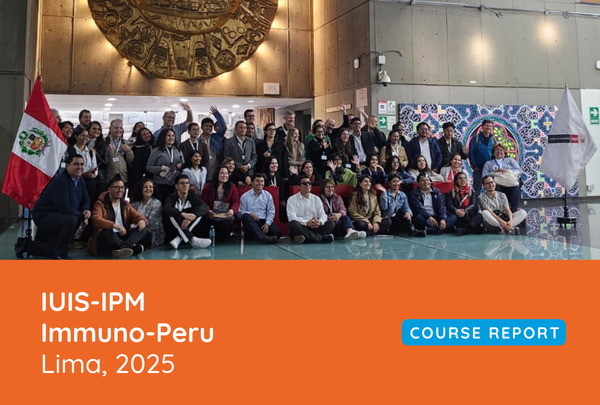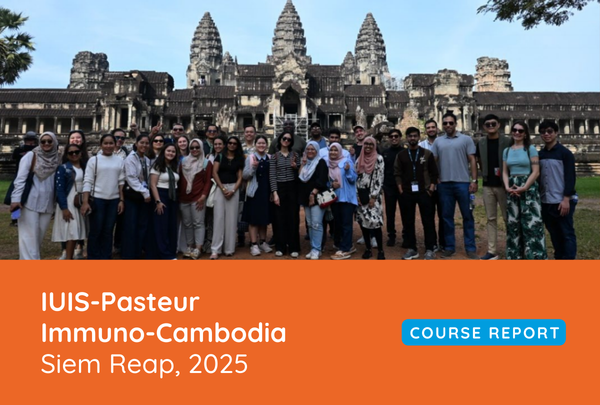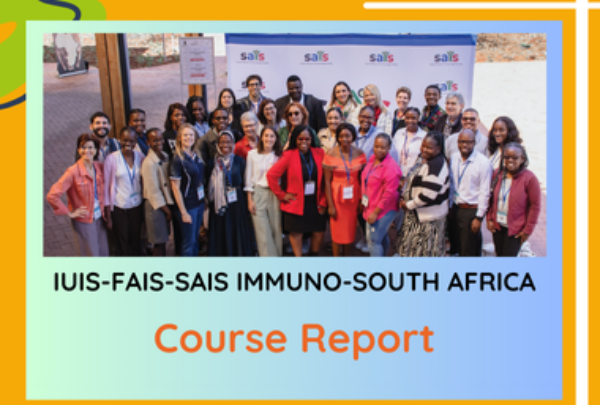Happy 2020 to all. We are facing huge challenges and changes throughout the world – from my hemisphere, over the past few months, we have experienced catastrophic bushfires right across the many parts of Australia. These have claimed many lives, destroyed 1000’s of properties, killed more than one billion animals and have left communities and cities devastated. We, along with the rest of the planet, are rolling out strategies to manage the inevitable COVID-19 pandemic. Managing emerging diseases highlights vital roles that the IUIS Committee for Inborn Errors of Immunity can have in the fields of infectious diseases, immune dysregulation and genetics of human disease.
We recently published two peer-reviewed scientific papers in the Journal of Clinical Immunology which provides updates to the monogenic causes of diseases of the immune system. The first of these (Tangye et al.) reports of novel genetic causes of inborn errors of immunity. In essence, conditions can manifest clinically as increased susceptibility to infectious disease, autoimmunity, autoinflammation, allergic and even cancer. Our previous update, published in January 2018, reported ~360 gene defects responsible for these conditions. The latest publication has increased this to now include 430 genetic causes of human immune diseases. This increase reflects the dynamic nature of the field, and ready-access to next generation DNA sequencing technologies, and the capacity to perform functional genomic assays to establish that coding changes in specific genes can indeed be pathogenic, and thus disease causing.
The second and companion article (Bousfiha et al) continues the outstanding work of committee member Aziz Bousfiha and diagrammatically categorises inborn errors of immunity according to clincal phenotype.

These 2 papers are incredibly valuable resources for clinical immunologists as well as non-specialists as they provide detailed updates of genetic causes of immune diseases, as well as assist in the differential diagnosis of these conditions. The value of these articles is reflected in the number of times they are viewed online and cited in the literaure. For instance, the updates published in 2018 by the committee (Picard et al J Clin Immunol; Bousfiha et al J Clin Immunol) have collectively been viewed more than 30.000 times and have been cited more than 400 times over the past two years. It is anticipated that these current publications will have a similar impact on the field.
This increase in the absolute number of genetically defined immune diseases (64 new conditions included in the current report compared to the previous published update) indicates that a novel genetic cause of immune dysregulation is discovered approximately every two weeks! This is quite remarkable, especially as inborn errors of immunity are often considered as “rare diseases”. And yes while, the incidence of individual conditions is rare, collectively (i.e. the sum of the parts) these diseases affect a substantial number of individuals across the globe. This was certainly apparent from social media and other platforms which recently recognised and celebrated inborn errors of immunity as part of “Rare Disease Day” in February. Furthermore, since finalising these publications, at least another 14 novel inborn errors of immunity have been reported. Thus, the committee will continue to be focussed and judicious in collating such reports in order to prepare the next update in the second half of 2021.
Over the past few months, members of the committee have been very active in the area of presenting latest findings at key clinical immunology meetings. The “2nd European Society for Immunodeficiencies (ESID) Focussed Meeting: PID and Malignancy” was held in September 2019 in Brussels, Belgium, and plenary presentations were given by Kate Sullivan, Anne Puel, Steve Holland, Capucine Picard and Isabelle Meyts. Similarly, the IUIS IEI committee was well-represented at the IPIC 2019 (International Primary Immunodeficiencies Congress) meeting held in Madrid in November 2019. Here, lectures were delivered by Stuart Tangye, Anne Puel, Isabelle Meyts, Troy Torgerson, Steve Holland, Aziz Bousfiha and Charlotte Cunningham-Rundles. In the current climate of COVID-19, it is also great to see Kate Sullivan providing timely and practical advice for not only the primary immunodeficiency community, but in fact everyone.
Before I sign off, I would like to thank all of my committee colleagues for making this a great collective of people working to provide an important service to the community. I would particularly like to recognise the efforts over many years of Jean-Laurent Casanova, Amos Etzioni, Hans Ochs and Talal Chatila, who have now all formally stepped down from the committee. I no doubt will seek your advice into the future!
All the best

Stuart Tangye, PhD
Ph: +61 2 9295 8455










